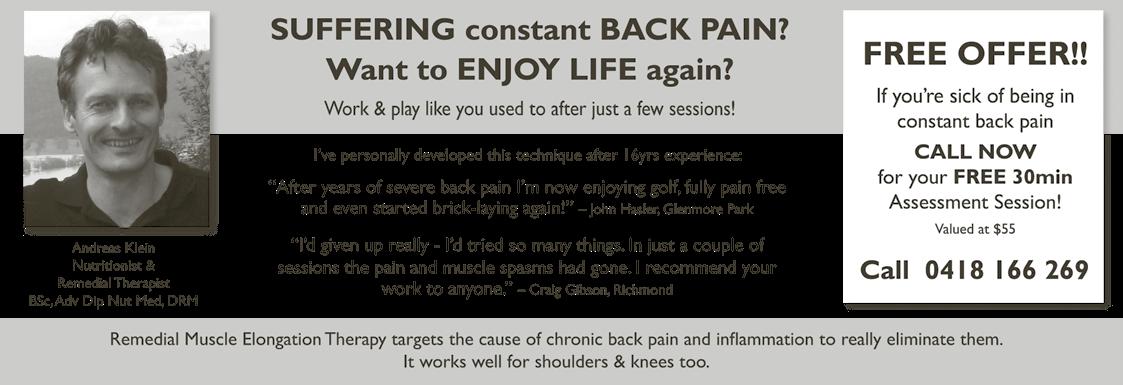
3 minute read
Clothing and Textile Recycling
Free Drop-off Event*
Saturday 10 June, 9am-3.30pm
Advertisement
The Kingsway Playing Fields, Werrington
Help keep valuable resources out of landfill by bringing your unwanted clothing, accessories (belts, scarves, handbags) and linen to Council’s free textile recycling drop-off event! Items dropped-off on the day will be recycled with Textile Recyclers Australia (TRA) to be made into new items such as blankets, floor rugs and tote bags. New, unworn clothing is welcome at the event, these items will be donated to local charities partnered with Textile Recyclers Australia such as The Haven and WestCare. *only clean items will be accepted on the day
Article Written + Submitted by: Senior Minister Roger Cunningham
P: 4735 1001 E: roger@epac.org.au W: www.epac.org.au
Service Times: Sundays @ 8:00am, 9:45am and 6:30pm
Plus activities for adults and young people throughout the week
The Wisdom of Solomon
Have you heard of King Solomon? Many have. He’s famous for his wisdom. When the Queen of Sheba visited him and saw his great buildings, and his kingdom and heard his answers to all her questions she said, ‘the reports I heard didn’t tell the half of it’.
So, how did he become so wise? How can we be wise like him? Well, Solomon was the new king of Israel when God made him an extraordinary offer, ‘Ask for whatever you want me to give you’. You can read it in the Bible in 1 Kings chapter three. Solomon’s answer? Please give me a hearing heart. Now, we tend to think of our ‘hearts’ as the core of our emotions and our minds the core of who we are. The Israelites spoke of their hearts as the core of who they were. The other thing to notice - God throughout the Bible is the speaking God. So, Solomon’s asking God to give him ears to hear what God has already said.
God was so pleased with Solomon’s request; he gave him a hearing heart and all the other things he could have asked for as well.
We live in a world where a greater king has arrived. The one Solomon pointed to. He is called the Word of God and the Wisdom of God. It’s no accident. Jesus heard and obeyed God’s word totally it’s at the heart of who he is.
So, how can we be wise – be truly wise? Ask God for a hearing heart. Ask for a heart that not only listens to God’s word revealed in Jesus, and found in our bibles, but humbles itself to do what he says. It’s not asking God to say something new to you, but to hear and be transformed by what he’s already said. And it’s the gift God loves to give and does give, through Jesus.
Health Matters
P: 0418 166 269
Could Stool Transplants Cure Ulcerative Colitis?
Generally Ulcerative colitis (UC) is considered incurable. Regular medical approaches to UC involve ongoing sometimes extensive medical or surgical intervention with antibiotic, anti-inflammatory, and/or immunosuppressive drugs. These interventions are supportive rather than curative and can themselves have side effects.
Treatment with antibiotics can improve UC symptoms, as well as UC colonoscopy and histological disease scores, suggesting gut microbes may help cause UC.
Animal colitis models show:
1. germ free animals get little intestinal inflammation, while
2. adding microbes heightens colitis.
Human UC patients have alterations in gut microbial composition.
Faecal microbial transplantation (FMT) tries to correct gut microbial composition.
Doctors taking stool from healthy stool-donors which is then transplanted into the bowels of UC patient.
A recent study looked at a specific method of FMT called ‘short duration FMT’ (SD-FMT) to determine if this newer method could induce remission more successfully. Stool was prepared/ processed without oxygen present, to minimise loss of oxygen sensitive donor microbes maximising transfer of beneficial organisms.
73 patients were randomised to receive either, 200 mL of faecal suspension from healthy donors (38 patients) or autologous (their own) stool (35 patients) as control. each group then received two further 100-mLs of their respective faecal suspensions, via enema In the following 7 days.
Researchers monitored disease activity, of patients in weeks 4, 8, and 52 and found that by week 8, steroid-free remission* was achieved by:
1. 12 of 38 participants (32%) donor SD-FMT; 5 of these maintained remission at 12 months,
2. 3 of the 35 (9%) receiving autologous SD-FMT; none maintained remission at 12 months,
Clearly FMT is not a cure all, but for the 13% of people in whom remission was maintained, it would be a god send. The interesting thing here is that no attempt was made in this study to determine the effects of or manipulate patient diet or micronutrient intake, both of which may have significant effects on disease, host health and bacterial health and diversity.





